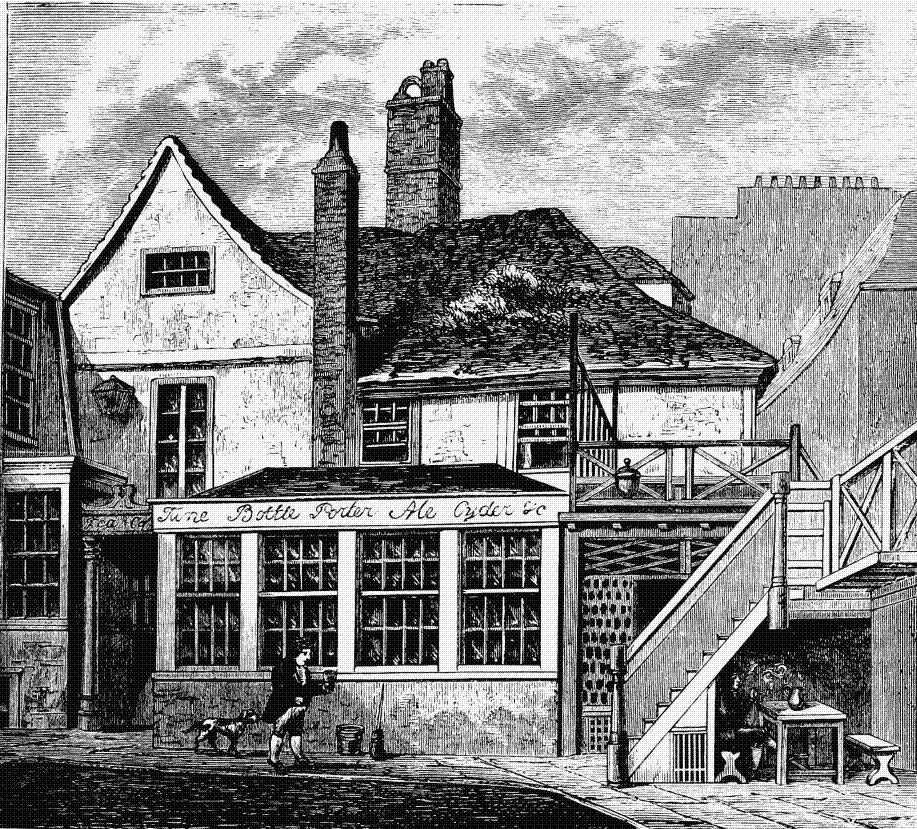This 1814 Beer Flood Killed Eight People
More than a hundred thousand gallons of beer burst onto the streets of London when a vat broke
/https://tf-cmsv2-smithsonianmag-media.s3.amazonaws.com/filer/a3/39/a3392a35-f93b-412c-836c-1ba0876eaf34/3197158501_4f0032e53f_o.jpg)
Beer is enjoyed across the globe–but too much really can be too much.
Take the London Beer Flood, an October 1814 industrial disaster that sent a 15-foot high tsunami of beer sweeping through the streets after a giant vat of porter at the Horse Shoe Brewery broke. There has never been another beer flood like it, thankfully. Here’s what happened.
The reason such a large single vat of beer was on hand can be traced back to the fact that having huge porter vats was an attraction for London breweries. “It is thought that one of the most spectacular sights, certainly at the major London porter breweries, was the sheer size of the storage vats, much kudos being attached to the brewer in possession of the largest example,” writes author Ian S. Hornsey in A History of Beer and Brewing. In 1763, vats capable of holding 1,500 barrels each were installed in breweries in London, and vats only continued to get bigger until the beer flood.
As beer historian Martyn Cornell points out, the beer vat that broke at the Horse Shoe Brewery wasn’t even the biggest one there. While historians differ on exactly how much the broken vat held (somewhere between 3,500 and 7,500 barrels) a contemporary writer who Cornell quotes says that the brewery’s largest held 18,000 barrels and had eighty tons of iron holding it together.
What is certain about the vat that broke is that it was enough beer to cause havoc. The dark liquid burst through the back wall of the brewery and into New Street and the surrounding area.

“All at once, I found myself borne onward with great velocity by a torrent which burst upon me so suddenly as almost to deprive me of breath,” wrote one anonymous American in an account published some 20 years later in The Knickerbocker. He was exploring the city and was rescued when the flood abated–others who lived there weren’t so lucky.
Horse Shoe Brewery was located in St. Giles Rookery, a poor area where many of the city’s most vulnerable lived in crowded underground cellars. And because it happened on a Monday afternoon, men and boys of working age were away from the area at their jobs, writes History.com, meaning the victims were children and women.
“Some of the inhabitants survived by clambering onto pieces of furniture. Others were not so lucky,” writes Rory Tingle for The Independent. “Hannah Banfield, a little girl, was taking tea with her mother, Mary, at their house in New Street when the deluge hit. Both were swept away in the current, and perished.” Elsewhere on New Street, mourners were gathered around a child’s body in a cellar, and five of them died. The last victim was a three-year-old girl named Sarah Bates.
“Soaked in poverty, the St. Giles neighborhood was now saturated in beer,” writes History.com. Neighbors waded through beer and wreckage in search of people trapped by the destruction. Newspaper accounts record that everyone was quiet in order to hear the cries of those trapped.
“Contemporary descriptions suggest that residents reacted with admirable calm,” writes the CBC. Beer historian Martyn Cornell told the CBC’s Carol Off that rumors about eager beer-drinkers rushing to the scene were just that–rumors. Based on the newspaper reports from the time, he said, nothing like that happened. St. Giles Rookery was full of Irish immigrants, and “newspapers at the time wouldn’t have been friends of the immigrant Irish,” he said–so the fact they don’t mention a mob descending on the beer flood suggests that it didn’t happen.
“In fact, the descriptions of what happened in the immediate aftermath of the disaster say that everybody was very calm, they were urged to be as quiet as possible so that any survivors could be heard under the rubble,” he said. The rumors started later, he said.
After all the beer was mopped up, the company that owned the brewery did just fine. It "received a waiver from the British Parliament for excise taxes it had already paid on the thousands of barrels of beer it lost," writes History.com–meaning it didn't have to pay taxes on the equivalent amount of beer when it brewed in future. Jurors declared the beer flood an "unavoidable act of God," writes Tingle. Those whose houses were destroyed and whose loved ones were lost received nothing from the government or the company.